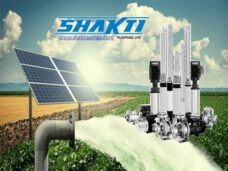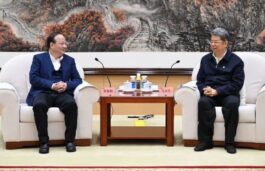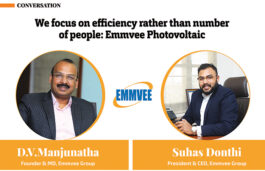 Avaada, ACME Get HC Relief In Solar Warehouse Duty Case
Avaada, ACME Get HC Relief In Solar Warehouse Duty Case The Delhi High Court in a latest judgement gave relief to Indian solar project developers Avaada and ACME. These companies had earlier approached the high court with a writ petition seeking their intervention against the orders of the revenue department to impose duties on their solar warehouses and show cause notices related to the cancellation of their warehouse licences.
In their petition before the court, the solar energy generators argued that they were entitled to benefits under the Manufacture and Other Operations in Warehouse (MOOWR) regulations. The benefits under the regulation meanwhile allow these firms to import solar modules free of duty by declaring their solar plans as bonded warehouses. They were deemed to be duty free unless they are moved from the area.
The Central Board of Indirect Taxes and Customs issued show-cause notices in July 2022 to these firms pertaining to the warehousing of the imported capital goods used in the generation of solar power. It also asserted the inapplicability of the MOOWR Regulations in these cases. The notices asked why their licence of warehousing as granted under MOOWR Regulations should not be canceled. On August 23, 2022 a letter sought a provisional duty bond as a condition precedent to the provisional release of the imported goods.
The Delhi High Court meanwhile ordered in favour of the solar developers and said that the MOOWR Regulations apply to the solar power generating firms. It ordered the quashing the notices issued by the revenue department on July 2022.
“Accordingly, and for all the aforesaid reasons, we allow the present writ petitions. The impugned Instruction of the Board dated 09 July 2022 insofar as it mandates a review of existing licenses and taking off ―follow-up action is hereby quashed…” the order against the plea of Avaada and ACME read.
Role of MOOWR Regulations
The Indian government to protect the invasion of Chinese solar modules had imposed Basic Custom Duty (BCD) to prevent the mass imports of cheap Chinese solar cells and solar modules. This was considered as a tariff barrier. On the other hand, the country also imposed another non-tariff barrier in the form of ALMM (Approved List of Module Manufacturers) to allow the use of only domestic solar modules, priced higher than the imported modules.
MOOWR is considered one of the tools to avoid import taxes. However, with the ALMM coming back into action, the mass usage of the regulations does not have enough space for the developers. The court order could likely be challenged by the government or the respondents in the case.
“…As noted above, we allow W.P.(C) 10838/2022 and quash the impugned order dated 19 July 2022 for reasons aforenoted. W.P.(C) 12386/2022 shall stand disposed of in accordance with the directions laid down in para 178 of this judgment. We leave it open to the respondents to proceed further in accordance with law,” the final order of the Delhi High Court said.



























